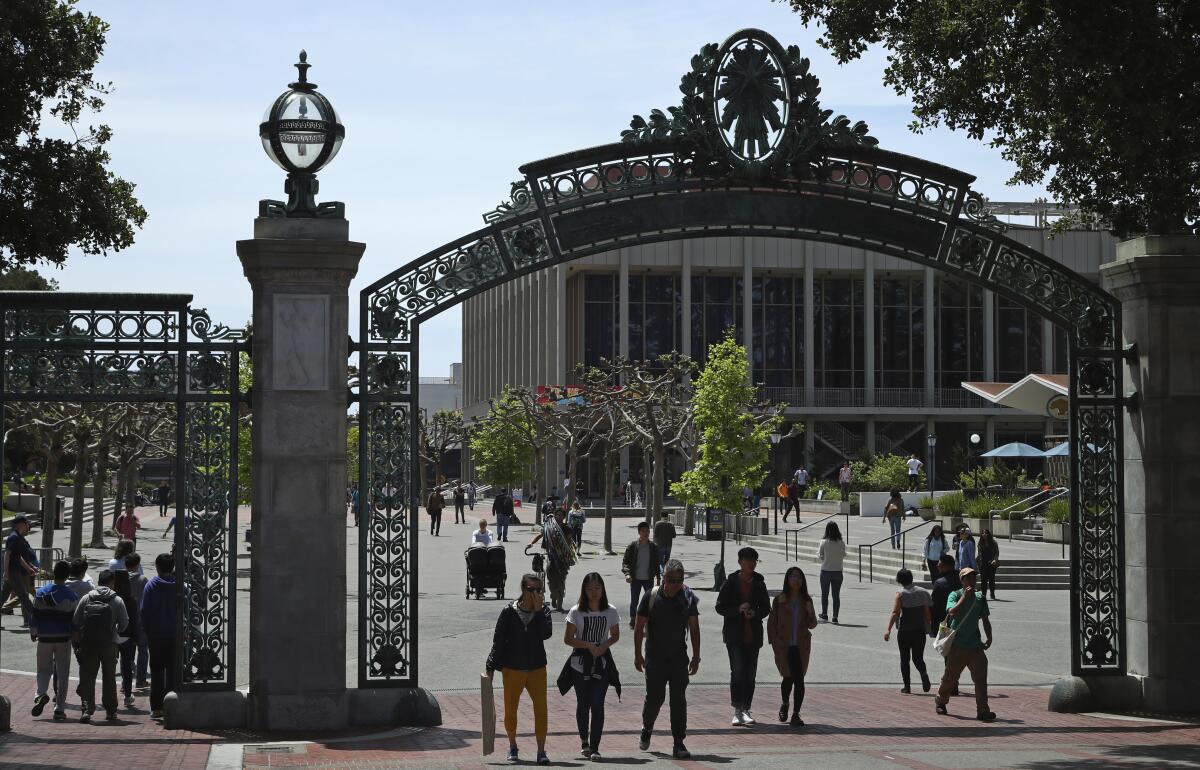Opinion: How California came to treat UC Berkeley students’ ‘noise’ as a dire environmental threat

In an era of upheaval and protest at People’s Park and across the country, UC Berkeley admitted its first significant wave of Chicano students in response to student pressure in 1969. Even then, the university had a housing shortage, prompting a successful effort to acquire a house near campus for the Chicano student community in the early ’70s. Half a century later, Casa Joaquin Murrieta continues to provide affordable student housing for about 40 Berkeley students.
The California Environmental Quality Act, enacted soon after the house was founded, would have killed the project before it started, depriving thousands of college students of affordable, stable, proximate campus housing. We know because that’s what it’s doing today, most recently in the form of a court ruling blocking the university’s effort to build sorely needed housing in People’s Park.
Then and now, the “environmental impact” of more student housing is in fact positive: More students living near campus means less traffic. It caused no harm to the environment to increase the occupancy and improve the interior of an existing structure.
But Casa Joaquin’s neighboring, overwhelmingly white homeowners could have used CEQA to demand costly studies and multiple hearings before Berkeley officials. City officials likely would have sided with their voting homeowner constituents and used CEQA to deny our building permit applications, just as Berkeley enthusiastically deployed cops to block our peaceful anti-Vietnam War demonstrations.
More recently, a series of court rulings that culminated last year nearly forced Berkeley to withhold admission of thousands of high school seniors because the state’s judges agreed with NIMBY neighborhood groups that population growth is an inherent environmental impact under CEQA. Only a quick fix by the Legislature headed off an enrollment freeze.
Now a state court has given Berkeley’s NIMBYs another gift. More than 50 years after CEQA was enacted, and in defiance of a 1993 amendment directing courts not to expand the law beyond what is expressly required, the appellate court invented an entirely new CEQA “impact”: noise from undergraduate parties. This arose from the NIMBYs’ demand to be protected from the “social noise” caused by adding college students to their neighborhood. Students could, after all, holler or sing or play music at volumes audible to their delicate neighbors (who are already surrounded by students).
This newly discovered impact is dangerously attributable to the future occupants of any unbuilt housing. NIMBYs can now argue that the noise that could be caused by any additional student or general population must be adequately analyzed and mitigated before any housing may be built.
Of course, excessive noise is annoying, and it’s also illegal when it happens after hours or with amplified equipment. City and campus cops enforce nuisance ordinances, and in an earlier stage of this lawsuit, the university agreed to a city demand that it pay for stepped-up enforcement against occasionally noisy students — most of whom worked hard to get into Berkeley but are nevertheless young people living away from home for the first time in their lives.
The concept of “social noise” is perfectly designed to block housing in existing neighborhoods. If this ruling stands, other demographic and individual behaviors could become adverse “environmental” impacts under CEQA. Because apartment residents are likely to be younger than their single-family homeowner neighbors, their “social noise” could come from a colicky infant, bickering siblings or bursts of rebellious teenage music.
Undergraduates without housing, especially students who are the first in their family to attend a four-year university, drop out at an alarming rate, leaving with debt and broken dreams instead of a college degree from one of the world’s premier public universities. Housing, in other words, matters. No wonder CEQA has been called the “law that swallowed California.”
Jennifer Hernandez is a partner with the law firm Holland & Knight specializing in land use and environmental law. Robert Apodaca is the executive director of the Two Hundred for Homeownership, a coalition dedicated to mitigating poverty through homeownership, and a co-founder of Casa Joaquin Murrieta.
More to Read
A cure for the common opinion
Get thought-provoking perspectives with our weekly newsletter.
You may occasionally receive promotional content from the Los Angeles Times.










